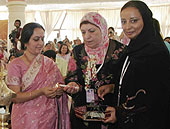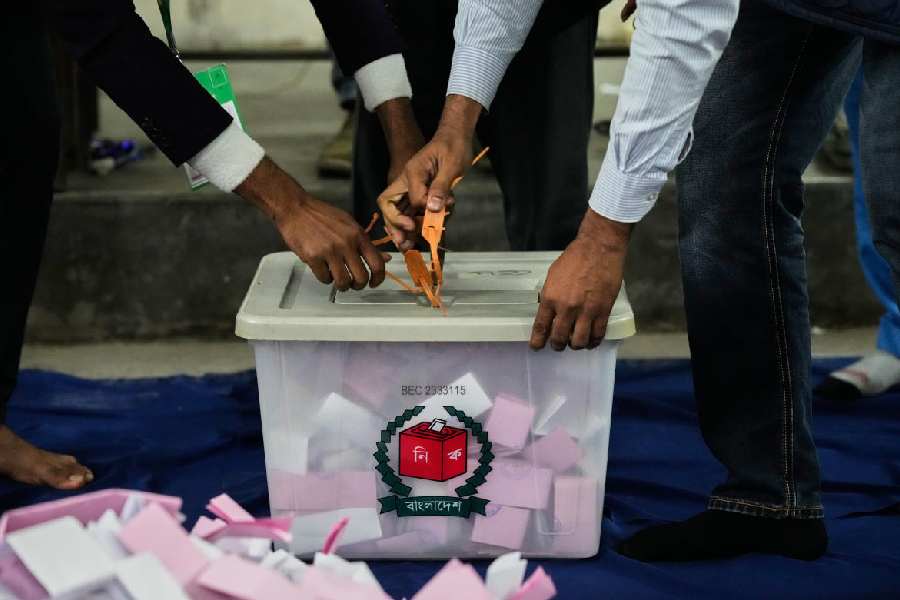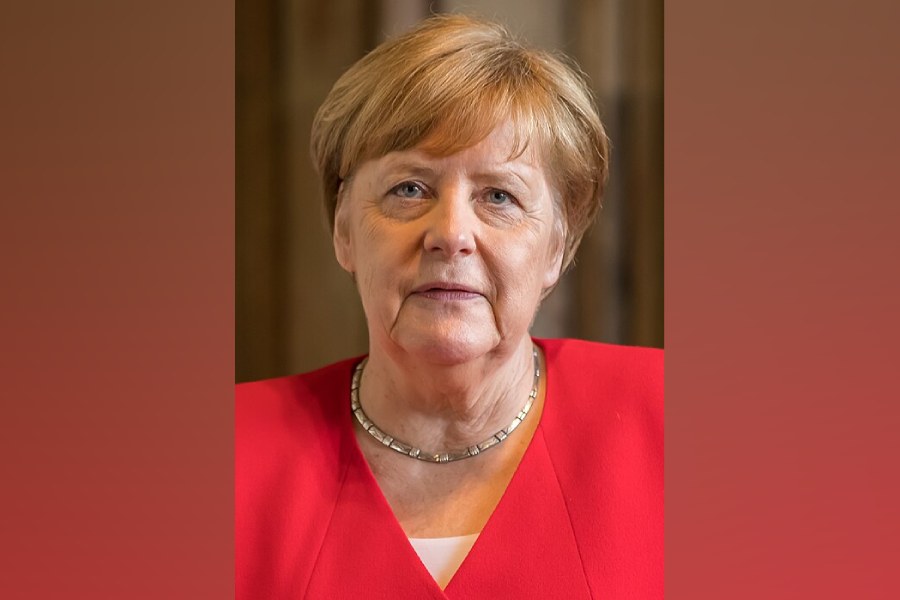 |
| Let there be light: Rajaa Khuzai, member, Interim National Council of Iraq (centre) with two other delegates at the inaugural ceremony of the conference |
How do you tell a bunch of men that sanitary napkins to a woman are not the same as perfumes and suntan lotions? The question left Njoki Ndungu foxed. All her years of experience as a woman activist, an outspoken lawyer and a member of the Kenyan parliament couldn’t help resolve the issue.
Last year, the government of Kenya planned to impose a luxury tax on sanitary napkins. The proposal was passed by a panel of 18 experts ? all men ? and seconded by the parliament whose members are 92 per cent male. When the parliament met to pass the bill, Ndungu made a last-ditch effort to stonewall it. This time she tried the ‘hit-where-it-hurts’ trick. “I asked the male members to think of all the extra money they’d be paying to the government,” she said. Kenya being a polygamous society, the sum was sure to be high. The bill was unanimously rejected.
The incident taught Ndungu an important lesson on leadership. “Women have to think laterally and think smart to be effective leaders,” she says. She was relating her story at the International Women’s Conference held in Bangalore earlier this month. Organised by a city-based NGO, the International Association for Human Values (IAHV), the conference was looking for answers to what makes women capable leaders.
The speakers at the three-day conference, titled Shakti: Strength of a Woman ? A Blueprint for Effective Women Leaders, came from different countries and had distinct takes on what makes a woman a leader. Jutta Stefan-Bastl, the Austrian ambassador to India, feels self-confidence and self-pride are the key to effective leadership. “Women need to feel that they cannot be pushed around. The earlier they learn this, the better,” she says. Just as Nasira Javed Iqbal, retired judge of the Lahore High Court, stresses that women will make effective leaders once they learn to take their own decisions. Iqbal gives the example of family planning in Pakistan ? 99 per cent women in the country know of family planning, but only three per cent apply it. “The men decide how many children the couple should have,” she says.
Taking decisions, of course, is easier said than done. But most participants at the conference felt that one way of making a woman a leader in her own right is by increasing their participation in politics. Kenya’s Ndungu, for one, believes that a political role gives a woman access to resources.
Reservation for women could be one of the routes to leadership. This, says Delhi chief minister Sheila Dikshit, can help women achieve goals in a country where they have historically been treated as second-class citizens. It is a system that, Iraqi politician Rajaa Khuzai stresses, is making a difference to the women of Iraq as well. Iraqi women tasted power for the first time in 2003, when 25 per cent seats were reserved for them in the Iraqi National Council.
Strangely, in Israel, where Golda Meir ruled, the role of women in politics is being questioned by women themselves. Alana Rozenman, founder of a women’s inter-faith association in Israel, feels that politics is a power game that divides more than unites people. And women who are out of politics can be effective as leaders, for they work around the west Asian problem, which Rozenman believes, has been fanned by political leaders.
Rozenman’s association ? called ‘Peace X Peace’ ? is a non-political meeting ground for Jewish, Muslim and Christian women in strife-torn Israel. That women have a role in brokering peace is a feeling that cuts across borders. In Iraq, women are the victims of violence, where a million men have died in three wars, a million have been disabled and another million taken prisoners of war.
But women bore the real brunt of the war,” says Khuzai, a member of the Interim National Council of Iraq. Today, Iraq’s sex ratio is skewed ? women far outnumber the men. Maternal mortality rate has increased three times since the West imposed its sanctions on Iraq. To counter this, girls as young as 10 are being married off. The school dropout rate has risen to 50 per cent among girls. “When women were struggling to survive, being a leader was out of question,” says Khuzai.
It was only in 2003 ? post the US invasion of Iraq and after the quota system ? that women were first appointed to the National Council. Khuzai is one of three women in the Iraqi Governing Council. “Initially, the men found our presence strange. They were uncomfortable about discussing administrative matters with women,” says Khuzai. This has changed with time, she adds.
But being a leader is not only about grabbing political space. Most speakers stress that women need to address themselves as well. To be a leader, a woman has to be both obstinate and patient. Take Pakistan’s Nasira Javed Iqbal, who became a High Court judge at 52, after her husband had retired from service. Back in college, when Javed topped the law course at Lahore University, it only helped her find a successful advocate husband. But the desire to be a lawyer lived on. Javed was in her 40s when she went to Harvard Law School, and is today one of the five women judges of Pakistan.
Austrian ambassador Jutta Stefan-Bastl wanted to wear the judge’s black robe, too. She completed her law degree in the early Sixties and applied for a judge’s job. Her application was turned down. The officer in the country’s legal recruitment department asked her to study something else. “He said having women judges was a hassle. They had babies and couldn’t be sent to villages,” remembers Stefan-Bastl.
She heeded the man’s advice, opted out of law and entered the Austrian Foreign Service. She soon discovered that she was unwelcome there as well. But Stefan-Bastl had given in once, and was not ready to do it again. “I obstinately held on to my job,” says Bastl who is one of eight women ambassadors in New Delhi.
At times, adversity makes leaders out of women. Israel’s Elana Rozenman was a happily married part-time psychotherapist, till her son was grievously injured in a bomb blast in 2000. Rozenman spent two years sleeping on a mattress next to her son’s bed in hospital. “I spent every night thinking of how I could bring peace to Israel,” she says. ‘Peace X Peace’ was born a year after her son’s recovery.
Rozenman’s group of women plans to bring peace to a country where the gun rules and generals call the shots. She hopes that ‘Peace X Peace’ will, some day, effectively broker peace for the region.
One day, perhaps, when women are leaders.
Corrigendum
The photograph said to be that of Kiranjit Ahluwalia published on 12.6.2005 was wrong. It was, in fact, that of author Rahila Gupta.
We regret the error.











